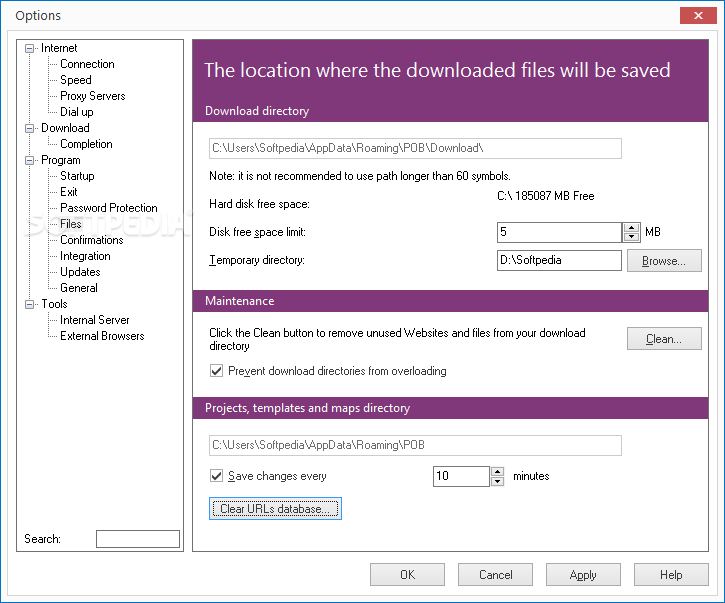1checker Offline Portable Software
When you download a file from the internet, quite often you cannot be 100% guaranteed that the file has not been changed in some way from the original. This could either be by the site you are downloading from, corruption due to errors in the download process, an individual who has uploaded the file for you, or possibly the most dangerous, the file has been infected by malicious software. One of the ways you can identify whether a file has been changed from its original state is to check its if it has one.

Or you can check the file integrity by looking at the hash value. Put simply, every file has unique data contained in it, and when you apply a certain algorithm called a “cryptographic hash function” to it, a string value is returned which is only valid for that file in the current state. If any piece of data in the file is changed, even 1 byte, and you apply the algorithm again, the value given this time will be different to the first value. And with that information you can see if the file is not the same before trying to use it. A couple of the popular hash algorithms are MD5 and SHA1 and you will sometimes see these hash values listed on websites when you go to a software download page. One of the prime examples is ISO images for operating systems like Linux and Windows.

All the official from Microsoft have the SHA1 hash listed on their website which you can then compare against to see if the one you downloaded, from Microsoft or elsewhere, is exactly the same. A major problem when you get ISO images from places like or is they often say “untouched”, until you download them So if you have something like an MD5 or SHA1 hash value from a website and want to check the integrity of the file you have downloaded, what do you do? Sadly, there is nothing available in Windows to help you out. What is needed is a utility to calculate a hash value using the same algorithm.

Simply have a look at the tools below and use one of them to see if the hash value you have matches. IgorWare Hasher This is a small and portable freeware tool that is able to calculate SHA1, MD5 and CRC32 values from any file you either Browse for, or drag and drop onto the window. IgorWare Hasher can either copy or save the result to a.sha,.md5 or.sfv file for later verification. These can then be used to check the file at a later date, useful if a file is going on a USB stick or coming back from a less than fully trusted source. You can also generate a hash value for a block of text as well as adding a right click context menu option, automatically checking the file on drag and drop and choosing between upper or lower case values. IgorWare Hasher has separate 32bit and 64bit versions available and works with Windows XP, Vista, Windows 7 and 8. Do note the download is a rar file. Hash Generator Hash Generator is by Security Xploded, a creator of many useful security related utilities.
1checker Offline Portable Software Free
As with a lot of their programs, Hash Generator has both a portable version and installer in the same zip file so you have the choice. Although, all you get in the installer is a context menu entry and the option of installing a third party toolbar. Hash Generator is able to calculate the file’s hash data by either the Browse button or drag and drop, then pressing Generate Hash. A total of 14 different hash types can be identified including CRC32, the MD5 family, the SHA family, Alder32, RipEmd160, Haval256-4 and Whirlpool. Creating a value for a block of text is also supported, as is exporting the data to an html, txt or xml file. Hash Generator is freeware and works on Windows XP, 2003, Vista, 7.
1checker Offline Portable Software For Windows 10
HashMyFiles HashMyFiles is another small and portable tool from Nirsoft that is very useful at what it does. This one is perhaps more oriented towards batch hash file checking because you can add single or multiple files, folders and sub folders, running processes, and also adding by wildcard. This program can display hashes for CRC32, MD5 and the SHA family (SHA1, SHA256, SHA384 and SHA512) and also other information like created and modified times, size, version information and attributes. HashMyFiles is also able to put an entry into the context menu for right click integrity checks and also export the data to a text, html, xml or csv file. A number of command line options are also available. As with all Nirsoft tools, this is freeware and works on Windows 2000, XP, 2003, Vista and Windows 7. MD5 & SHA-1 Checksum Utility Even though this utility by comparison has nowhere near the features of some of the other tools listed here, I actually quite like it because it’s very easy and simple to use.
Simply click the button and browse for the file, or drag and drop, then the MD5 and SHA1 hash values will automatically appear. If you want to verify the generated hash with a previous one, just paste it into the box and click Verify. The program could do with a progress meter for large files, but if you want a simple tool which just gives you the hash value with no frills, the MD5 & SHA-1 Checksum Utility is certainly worth a look. It’s freeware, portable and works with Windows XP, Vista and 7. ComputeHash ComputeHash is a simple tool like the MD5 & SHA-1 Checksum Utility above but needs installing and is only accessed by right clicking on a file and clicking on “ Compute Hash“. Again, it’s not loaded with functions, but gives you MD5, SHA1, SHA256, SHA384 and SHA512 values.
Each can be individually copied to the clipboard, or all values can be exported to a text file. The program requires.Net Framework 2 or above, is freeware and compatible with Windows XP, Vista and Windows 7 32bit and 64bit. Similar to HashTab by ImplBits is the program by Kai Liu named HashCheck. It, too, installs as a shell extension for Windows Explorer, and works on both x86 as well as x64. See code.kliu.org/hashcheck/ Even though it has not been updated in a very long time (over 6 years!) it works well in XP through 10.
Although it shows only CRC-32, MD4/5, and SHA-1, it also has the ability to.save. the MD5 check file for future verification. Another advantage over HashTab is that you can select multiple files and hash them all at once, and again, save the MD5 of all selected files together in a single file.